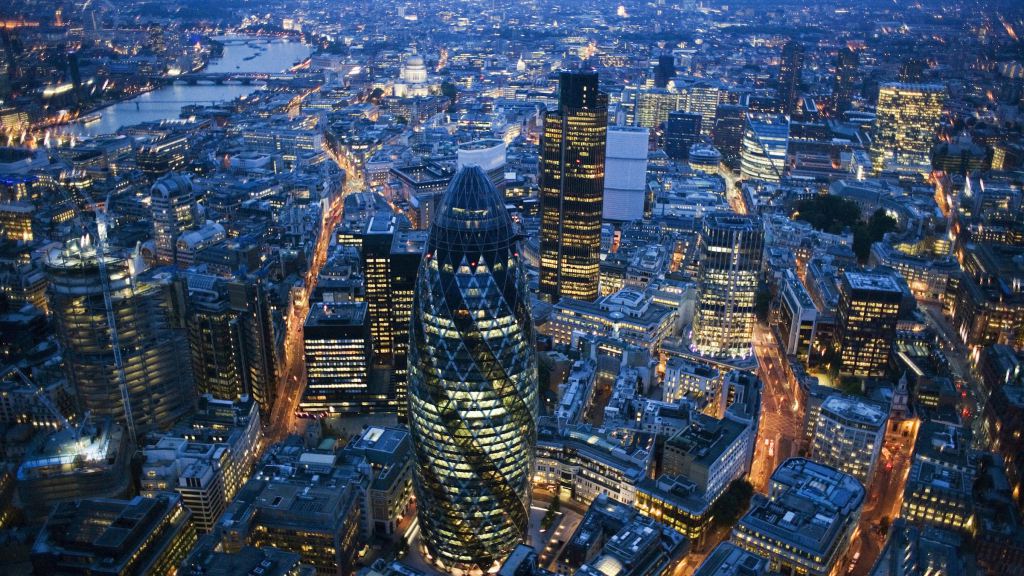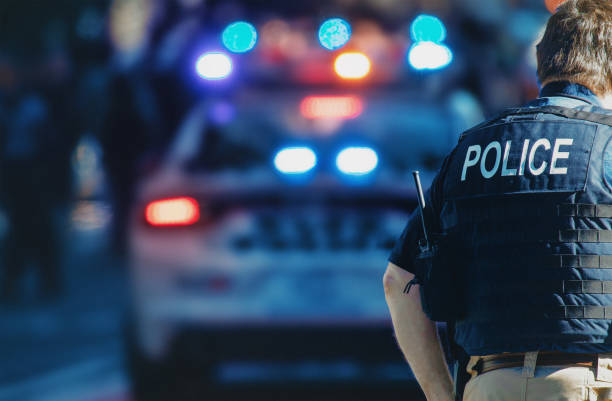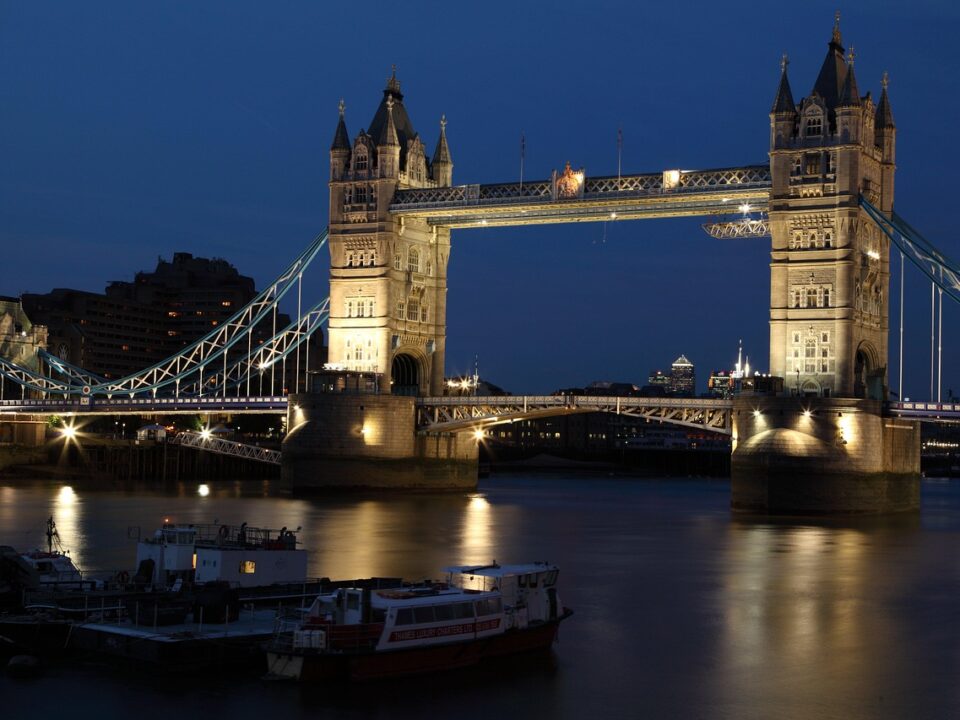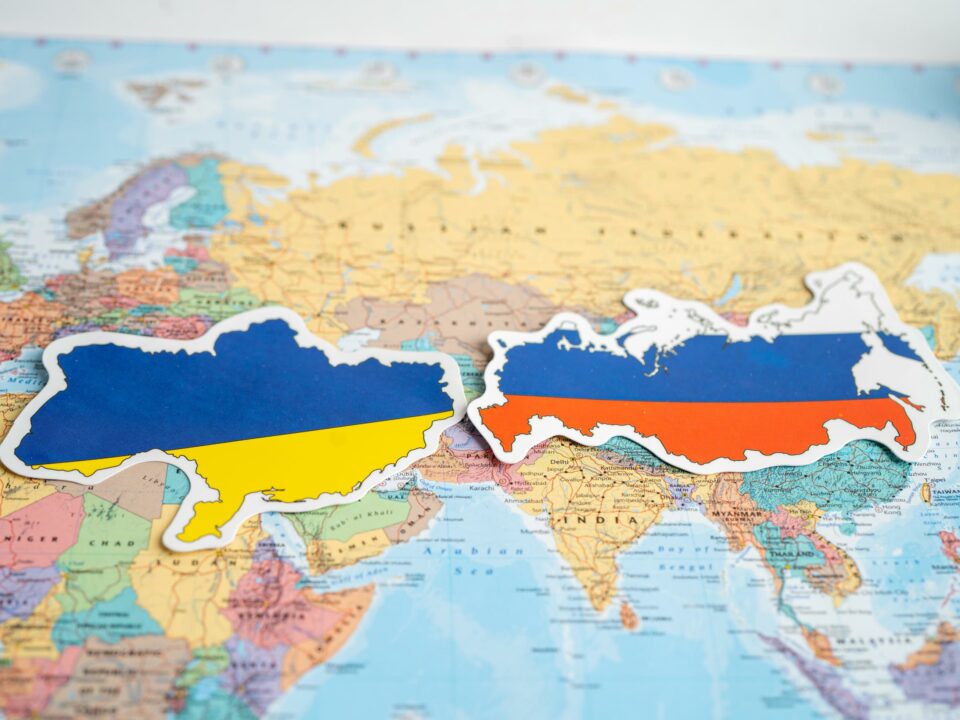
‘Vice and Virtue’: Continued Codification of Women Right’s Violations in Afghanistan
October 25, 2024
The Decline of the UK’s Capital Markets
October 27, 2024Background and Context
Violent anti-immigration riots and protests led by far-right groups erupted across the United Kingdom between 30 July and 5 August 2024. The chaotic unrest was sparked by a knife attack at a concert in Southport that resulted in the deaths of three children and injuries to a dozen others. Social media misinformation of the incident quickly spread, with false claims suggesting that the attacker was a Muslim asylum-seeker—in fact, the suspect was born in Cardiff and was of Christian Rwanda descent.
A combination of underlying social, economic, and political factors helped contribute to the gradual build-up to this event:
- Crime
The Crime Survey for England and Wales (CSEW) reported that in the year ending March 2024, there was a 4% increase in knife-enabled crime, an 8% increase in robbery offences, and a 30% increase in shoplifting offences compared to the previous year. Although some believe there is a correlation between these offences to immigrants, statistical data proves otherwise. From 2011 to 2021, the population of non-UK born residents rose from 7.5 million to 10 million (a 33% increase). On the contrary, long-term trends show a decline in violent crime, theft offences, and criminal damage since the mid-1990s; this proves that the increase in immigrants is not necessarily related to the high crime rates in certain categories. Crimes committed by immigrants are more frequently spotlighted in the media compared to crimes committed by non-immigrants. Therefore, public perception is largely negative when reviewing the role of immigrants in crime.
- Economic Hardships
Skyrocketing inflation, poverty, and unemployment became the norm after Brexit in 2020. A 2023 report found that the cost-of-living crisis worsened, with food prices rising by 30% between December 2019 and March 2023. Furthermore, the UK faced a decline in migrant workers from the European Union due to strict immigration policies resulting in a net migration shortfall of 330,000 workers. This encouraged non-EU immigrants to fill gaps in the labour force. Some working-class Britons were quick to scapegoat immigrants for the lack of economic opportunities; however, in high-skilled sectors like healthcare and education, non-EU workers adequately replaced the net loss from the EU. Without the support of immigrants, many industries would likely cripple, leading to further economic decline.
- Populist Movements
Following the 2024 General Election, Nigel Farage—leader of the Reform UK party—secured a seat in Parliament as one of five members from his party. Farage appeared to incite further riots after the attack by suggesting on social media that ‘the truth is being withheld from us’; a Savanta poll revealed that 51% of people believed that Farage was to blame for the riots. In his campaign, Farage was a strong advocate for anti-immigration policies and a no-deal Brexit. He positioned himself as an alternative to the Conservative Party, winning the support of many former supporters who became discontented with the failures of the Tory government. Tommy Robinson, founder of the English Defence League (a far-right Islamophobia organisation), was also behind the riots by spreading misinformation through his online platforms. His nationalist ideas resonated with many concerned about the threats of immigration and terrorism—particularly in a post-9/11 world.
Timeline of Key Events
On 30 July, the first riots occurred in Southport (where the stabbings had originally taken place). Far-right mobs totalling up to 300 people attacked mosques, looted shops, torched cars, and caused injuries to at least 50 police officers.
On 31 July, the riots spread to other towns and cities in the UK. In Manchester and Aldershot, rioters attacked accommodation housing asylum seekers. In Hartlepool, sharp objects were thrown at officers, resulting in eight arrests that included 2 teenage boys. In the capital city of London, thousands gathered outside Downing Street, chanting anti-immigration slogans in front of the official residence of Prime Minister Keir Starmer.
On 2 August, Sunderland rioters gathered in the city centre, setting fire to several buildings and cars.
On 3 August, many more locations were affected, including Blackpool, Liverpool, Hull, Nottingham, Bristol, Belfast, and Portsmouth.
On 4 August, further riots were seen in Rotherham, Middlesbrough, Tamworth, Weymouth, and Sunderland. Riots similarly appeared in Plymouth, Darlington, and Birmingham on 5 August. Tensions and protests saw a decrease after this but continued for several days after.
The Criminal Justice System’s Response
Law enforcement enabled the arrests of 1,380 people since July, with the total number of charges at 863. The nature of sentencing by the Crown Court was especially severe for Thomas Birley, who received a nine-year prison sentence for his role in the Rotherham riots. Judges shockingly described his actions as ‘one of the worst cases the court had heard’. Most sentences handed out ranged from four months to three years, reflecting the harsh consequences of participating in anti-social behaviour.
Rioters were mainly charged under section 2 of the Public Order Act 1986; the offence of violent disorder is defined as the gathering of 3 or more people who intend to use or threaten unlawful violence to cause harm to the personal safety of another. Under this offence, violators could be sentenced a maximum of five years imprisonment. Others were charged with additional offences, including burglary, assault, and racially aggravated behaviour. Jordan Parlour was the first to be arrested for his online comments, where he encouraged an attack on a hotel housing asylum seekers. This fell under section 3 of the Act, which criminalised the possession or promotion of material instigating racial hatred.
Significance and Implications
The economic impact of the riots was extensive, causing many local shops and businesses to be vandalised. Cleveland Police estimated the total cost in the region at £300,000, while total insurance claims across the country are estimated at tens of millions of pounds. Further economic losses could be sustained on an national scale due to widespread damage on the UK’s reputation. The governments of Nigeria, Kenya, Indonesia, India, Malaysia, Hong Kong, and the UAE issued warnings for its citizens advising against travel to the UK in the wake of the riots. This could potentially lead to a loss in investment and spending on local businesses, which would negatively impact regional economies and long-term economic growth.
The economic fallout also triggered political debate. The events further highlighted the rise of the far-right and issues relating to immigration—a topic with deep roots in British society. Despite most politicians across all parties universally condemning the riots, other politicians were more hesitant to criticise. Rishi Sunak, leader of the Conservative Party, took to social media to condemn the riots, but has remained silent since. The hesitancy of some Conservatives can be explained by the uncertainty of addressing far-right voters that could potentially be won back in the midst of the ongoing Conservative leadership contest. Furthermore, Conservative Robert Jenrick had also previously sympathised with Farage on his anti-immigration policies. It suggests a struggle of trying to win back Tory-Reform voters in order to boost support after the Conservative’s disastrous loss in the recent general election. On the other hand, the Labour Party has taken a more harsh stance. Party leader Keir Starmer called rioters ‘far-right thugs’, followed by a series of recommendations such as encouraging integration and improving employment in deprived areas. Criminal prosecutions were also ramped up, with Starmer claiming that rioters would ‘face the full force of the law’.
In response to the riots, thousands of counterprotests against anti-immigration riots stood in solidarity with asylum seekers following an announcement of over 100 far-right rallies. Signs contained messages such as ‘we are one human race’, ‘refugees welcome’, and ‘no place for hate’ were held up. Counterprotestors largely outnumbered far-right protestors, with some places finding no protestors to counter against. This highlights the majority view of Britons across the country who stand opposed to the riots, with one studying finding that only 34% supported the riots.
In addition to these issues, the role of teenagers in the riots also raises serious concerns about youth participation in violent activities. Over 400 young people have been charged, with at least 72 being under the age of 18. The shocking nature of the statistics underscores the need to control susceptibility to social influence and to prevent youth engagement in racist or anti-social behaviour.
Overall, the riots reflect the underlying issues affecting Britain today. They emphasise the need for tolerance and inclusivity in an increasingly multicultural society.
Article by Meagan Lim





